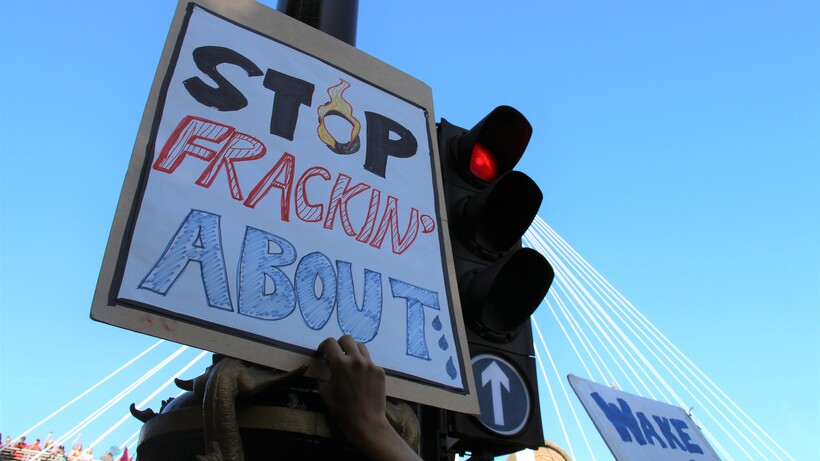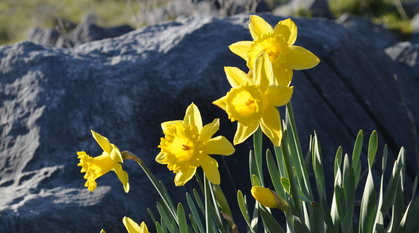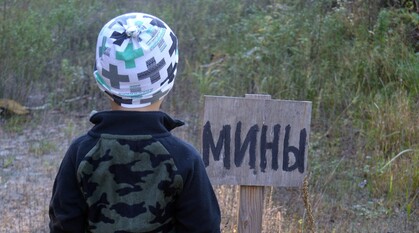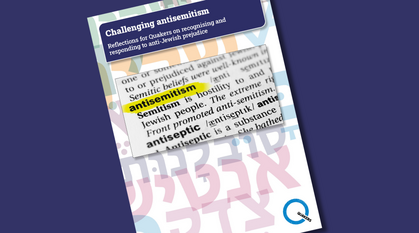Beyond the emergency: what I've learnt about communicating the climate crisis
Olivia Hanks examines the term 'climate emergency' and explains why it isn't always a helpful framing for climate action.

For those of us who spend our lives immersed in the climate crisis and climate action, it can be hard to understand why more people aren't dropping everything to help tackle the escalating catastrophe. It's tempting to assume that we simply haven't raised the alarm loudly enough, and that we need to ramp up the messages of urgency and unfolding disaster.
During the first session of our Exploring Faith and Climate Justice course last month, I was asked why Quakers in Britain don't generally use the term 'climate emergency'. It's not because we don't think it's urgent. It is.
But research has shown that messages of fear and doom don't always spur people to action. While each person's emotional response may be different, these messages tend to make people switch off, as a kind of defence mechanism.
It can also be confusing for people in the UK to keep hearing the language of 'emergency' when many are not yet seeing drastic changes in their lives as a result of climate breakdown. The rallying cry of 'two/five/ten years to save the planet!' can start to sound like a false alarm as deadline after deadline passes – even though activists and scientists know that projections are proving correct.
A state of emergency?
Emergencies are generally unforeseen and short-lived. They are usually quickly resolved, for better or worse. This doesn't accurately express the reality of climate breakdown, which has developed according to projections over decades. We will all be living with it for the rest of our lives, even if society's response vastly improves.
While the speed of our climate action is hugely important, it isn't the only thing that matters. For some, urgent action might mean hoarding resources and using military force to deny access to energy to all but the richest, or appropriating land to grow biofuels instead of food.
A 'state of emergency' is a declaration made by a government which allows it to suspend the country's constitution and assume additional powers, often including the suspension of various rights and freedoms. The risk of misuse of these powers is high. This is why Quaker work focuses on climate justice. In the rapid transition we need, we must confront the issues of who pays, who benefits, and who is making the decisions.
Exploring climate justice
There is lots more to say about what climate justice is (you can sign up for our Exploring Faith and Climate Justice course here!), but it rests on a few basic principles. These include historical responsibility and interconnectedness.
Climate breakdown is deeply linked with our economic, social and political systems, and makes existing injustices worse. Not everyone is equally responsible for the climate crisis, and those least responsible are generally experiencing the worst impacts – so those countries/corporations who caused the problem need to contribute the most to addressing it.
Interestingly, the Framing Climate Justice project found that the 'emergency' narrative makes people more likely to say the climate crisis has no impact on existing injustices. Most of the people they spoke to already think climate change is an emergency; the report argues that, "we need to put our efforts into motivating people that the right kinds of climate justice solutions are possible, not into making people more afraid about what's ahead. Emergency frames have the effect of narrowing people's perspectives, making them less open to complex and creative solutions".
Changing the narrative
It can be challenging to talk about solutions without slipping into a kind of false optimism which downplays the terrifying reality. It is our duty to tell the truth – but that truth contains beauty as well as horror, joy alongside grief. Can we find ways to root our action in the best truths about humanity: our ingenuity and imagination, our love for one another, our glimpses of something vast beyond ourselves?
For Quakers, God or the Spirit is everywhere; there is no hierarchy of special places or people. That must mean that every place, every person we can save is worth saving; which in turn means that while we live, it will never be too late. I believe that the language of climate justice, and the tangible realities of the just world we are building together, will inspire people to act far more effectively than a rolling news channel of doom.
We must speak of what we have to gain in this struggle, as well as what we stand to lose. We must keep our sights on all that is good in the world and how we might nurture it; and on the beautiful and truthful stories we can still create and tell together.


